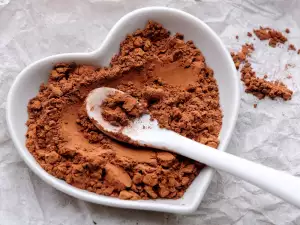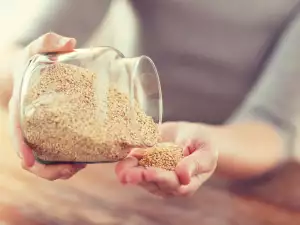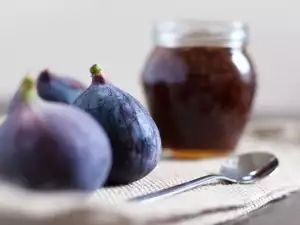Almost all year round in supermarkets, buyers are attracted by the beautiful yellow-orange fruits of the persimmon. It is not only very tasty, but also an extremely healthy fruit.
The homeland of the persimmon is China. From there, this fruit spread throughout East Asia and then Japan. Only at the end of the 19th century did the whole world learn about this beautiful fruit. The persimmon has about 500 varieties, most of which grow in tropical climates.
The beneficial properties of the persimmon are explained by its rich nutritional composition. For example, it has twice as many useful trace elements and dietary fiber as apples. It contains a wide variety of antioxidants, a lot of water, proteins, carbohydrates, organic acids and fermentative substances. It is rich in potassium, calcium, magnesium, phosphorus and iron, as well as vitamins A, C and P.
Perhaps, the most important property of the persimmon is especially valuable for women who monitor their weight - it is a dietary fruit. Thanks to its high content of pectin, it helps with various digestive disorders, which means that it is useful in the fight against excess weight. Persimmon is used in folk medicine to treat stomach ailments.

The high concentration of sugar, which is glucose and fructose, supports the proper functioning of the heart and circulatory system, nourishes the heart muscle, while at the same time not raising the level of glucose in the blood to a critical level. Nevertheless, it is better for diabetics not to get carried away with persimmon, because if they consume too many of them, they may raise their blood sugar levels.
And that's not all, the persimmon is rich in a bunch of other elements that have a positive effect on different areas of the human body. In particular, due to its high magnesium content, the persimmon reduces the likelihood of kidney stones and the vitamin A found in it protects the body from the appearance of cancerous tumors.
Vitamins C and P effectively strengthen blood vessels. In addition, the fruit has a diuretic and tonic property, a positive effect on the prostate, which makes it an extremely useful fruit for men.
The list of benefits of persimmon consumption is very long.
Calms the nervous system, increases efficiency and reduces headaches. It is an antibacterial agent against Escherichia coli and Staphylococcus aureus. In case of colds and coughs, you can gargle with persimmon juice diluted with water to relieve your condition.

In general, doctors and scientists note that persimmon is most beneficial in the prevention of heart diseases and circulatory system. It provides complex benefits for the body and therefore its moderate use is recommended for everyone.
Persimmon can also be used for cosmetic purposes. A persimmon and egg white mask would be very useful for women because it effectively cleanses pores and destroys small pimples. Like other orange fruit (apricots, peaches, melons, oranges, tangerines, carrots), it improves skin color and increases the production of chemicals responsible for sexuality.
To preserve the beneficial properties of the fruit, it is necessary to learn how to choose and store the persimmon. You need to buy a well-ripened fruit - only then will its pulp be juicy, tasty and healthy. It is most beneficial to consume only raw persimmon, but if you wish, you can dry them to make syrup, jam, jelly, etc.
Store the fruit very carefully, by being careful not to damage the skin of the persimmon. It is best stored frozen. Another good option for long-term storage is to keep the persimmon for 12 hours in warm water, then store it in the refrigerator.


















Comments